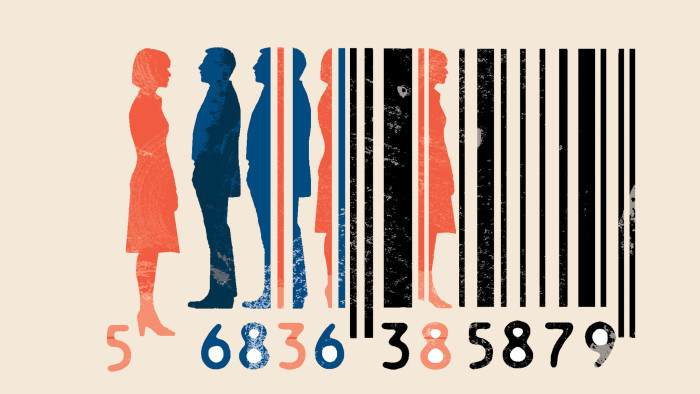Digital v human: the new debate


Roula Khalaf, Editor of the FT, selects her favourite stories in this weekly newsletter.
A couple of years ago Brian Arthur, an academic affiliated with the Palo Alto Research Center, made a startling prediction. In the next two to three decades, western digital networks would end up performing functions equal to the size of the “real” US economy. Or, to put it another way, if you looked at all the work being done by electronic supply chains, robots, communications systems – and the humble bar code – then the digital economy would “surpass the physical economy in size”, Arthur wrote, on the basis of productivity and output calculations.
It sounds impressive. But it also raises a crucial question: as those digital networks swell in size, what are flesh-and-blood workers going to do in this future world? Last month Simon Head, an academic who teaches at Oxford University and New York University, plunged into this debate with a book entitled Mindless: Why Smarter Machines are Making Dumber Humans.
As the subtitle suggests, Head is profoundly gloomy. For the dirty secret of these digital networks – or “computer business systems”, as he calls them, using corporate jargon – is that humans do not know how to fight back. These networks keep displacing jobs that used to be performed by the middle classes, tossing them out of work or into thankless, monotonous drudgery, even as a tiny elite of skilled managers (or business owners) gets wealthier. As a result, income inequality keeps growing and digital systems increasingly dictate what we all do, overriding human common sense.
This can be seen in the financial sector, Head argues, pointing out that digitisation enabled some companies to create the subprime mortgage business. It is impacting the world of medicine, where healthcare providers are told what drugs to prescribe according to computer systems. It has overtaken many manufacturing companies, too.
But the real foretaste of the future – and digital hell – is with companies such as Walmart and Amazon, he claims. While the word “Amazon” is apt to conjure up delight for consumers, given its wonderfully efficient shopping experience, people working inside the company’s warehouses live in a world of electronic surveillance, low wages and physically demanding work. And, of course, the rise of Amazon has also been deeply painful for many independent retailers, suppliers and writers.
On one level, Head’s howl of rage is nothing new. Academics have been writing about the digitisation revolution for some time (to see a more nuanced, and more cheerful, account, look at the excellent book, The Second Machine Age , by Andrew McAfee and Erik Brynjolfsson). But what is perhaps most interesting of all about Head’s view is that while he writes from an indignant, leftwing perspective, even he cannot find any answers.
Unlike those early Luddites who simply smashed up 19th-century weaving machines, Head does not want to ban bar codes. Instead, he wants “higher-paying, higher-skilled jobs, with the component CBS technologies used to supplement rather than replace employee expertise” in a new corporate culture which treats workers with dignity (or at least more attention than those robots). But while he cites a few “case histories where alternative, employee-friendly cultures have taken root”, he also admits “these are not easily replicated elsewhere”.
Thus, he admires “Germany’s culture of co-determination and labour-management partnership”, for example, or “the John Lewis Partnership in the United Kingdom, employee owned and the best high-quality retail chain in the country”, or “exceptional [US companies] like Lincoln Electric”. But he also warns that “it would be delusional to think that, in the United States, the domain of these alternative work cultures will expand spontaneously”. The Amazon example is just too strong.
…
The real rub of invisible digitisation is exactly that: the revolution is unseen. Thus, while “the progressive response to the harshness of 19th-century capitalism was fuelled by a growing awareness of what was going on behind factory walls, CBS are by comparison invisible”. They are like black holes: sensed, not watched.
If you want to be cheerful it is possible to hope that this howl of rage is simply a passing phase. When millions of people lost their agricultural jobs in earlier centuries, nobody foresaw these labourers would find factory work. But it is also possible to imagine a darker future: as the French economist Thomas Piketty writes in another thought-provoking book, Capital in the Twenty-First Century, it is not clear what could halt this digitisation trend – and the growing inequality it generates.
Either way, the key point is this: we have barely begun to understand the full implications of this second, digitised economy. That is a point we all need to ponder more deeply. Starting, perhaps, on the next occasion you swipe a bar code – or place an order on Amazon – with such deceptive, seductive ease.
Comments